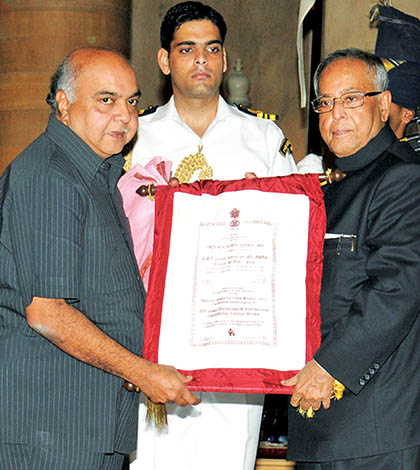
 Set up after a Moplah rebellion 93 years ago, the JDT Islam orphanage continues to work towards uplifting orphans and underprivileged children through free education and aspires to bring more children under its fold. ENN reports
Set up after a Moplah rebellion 93 years ago, the JDT Islam orphanage continues to work towards uplifting orphans and underprivileged children through free education and aspires to bring more children under its fold. ENN reports
Established in the Malabar region in 1922 for the rehabilitation of children orphaned in the Moplah rebellion in 1921, Jam’iyyat Da’wa Tablighul Islam, better known as the JDT Islam Orphanage, is a charitable and a cosmopolitan educational institution.
There is an interesting background as to how the JDT came into being. Prior to the setting up of the institution, a majority of the population in the region were living in abject poverty, except for a few landlords. The peasants had no right to their property except to cultivate after paying a fixed portion to the landlord as ‘pattam’. What followed was the Malabar revolt of 1921 that left about 10,000 dead and thousands of children orphaned.
Inspired by an article written in The Hindu by freedom fighter Mohammed Abdurehman, Abdul Khader Kasoori, a philanthropist from Lahore in the then undivided Punjab, went to Malabar in the 1920s and took up the initiative to purchase land and establish JDT, their first such initiative.
What began as an orphanage with the intention to provide shelter, food and care for the unfortunate offsprings of the bygone Malabar Rebellion has today made its mark spreading education in the Malabar region. Such has been the journey of the JDT group that it was bestowed with the National Award for Child Development by President Pranab Mukherjee in 2011.
Over the years, JDT has grown 27 institutions under its management offering 70 courses under various streams and offers courses that include B. pharma,D. pharma, B. Sc, Nursing, Poly Diplomas, B. Com, BBA, Multi media and Biotechnology. The group also set up an Industrial Training Institute in 1978, Information Technology Centre in 2005, School of Nursing in 2007 and a Community college in 2011. With the introduction of new courses, the intake of students has also increased in the new academic session. “Every year, the student intake is around 2,600 and continues to increase with additional number of courses introduced at every new academic session,” C P Kunhimohammed, Chairman and President of JDT Islam Group of Institutions points out.
“JDT Islam has journeyed a long way and is known for spreading education in the Malabar region”
With high literacy rates in Kerala, women form a major chunk of JDT’s faculty strength. Of the total 1,521 faculty members, around 1,109 are women and the remaining 412 are male employees. The JDT Group also offers fee concessions, free hostel accommodation and priority in employment to women students. Due to tie-ups with various industries for placement of students and training of staff, Kunhimohammed claims most engineering students are absorbed through campus interviews. “In addition, we are conducting job fairs and recruitment drives by inviting different employers. Our students are employed in various firms in and outside India,” he adds. Besides existing vocational courses, JDT Group also conducts different courses under the modular employment scheme of the central government.
In an effort to improve the employability of their students, the group has now submitted a proposal to the Centre for sanction of a Community Polytechnic. The JDT High School has also received an amount of ` 25 lakh as a portion of grant by the central government through its Infrastructure Development Scheme for minority institutions. To inspire students and teachers of the group towards new horizons, JDT also organises a talent show annually in the areas of art, handicraft, social, antiques, collections, science etc. Around 20,000 students and teachers of JDT’s 27 institutions participate in the talent show.
“We need the government to introduce scholarship programmes to for orphans undergoing vocational and professional schemes, sanction more finance to establish courses funds for institutions for infrastructure and financial assistance to minority community,” says Kunhimo hammed, seeking greater support and encouragement from the government. It is high time such philanthropic organisations engaged in uplifting the weak and downtrodden were funded well.



















